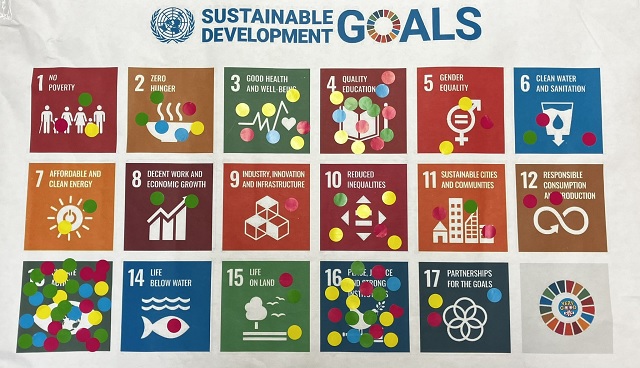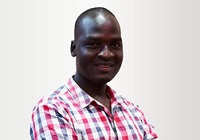
Where the `Leave No One Behind’ commitment is an unfulfilled promise rather than a transformative reality
COMMENT | WALTER AKENA | The principle of “Leave No One Behind” is a global commitment to eradicate poverty, eliminate exclusion, and address inequalities hindering human potential. To achieve this, world leaders birthed the 17 Sustainable Development Goals (SDGs). With only five years remaining to the 2030 deadline, this vision remains elusive for Wandi Sub-County, where limited access to essential services, including education, healthcare, clean water, and agricultural extension, continues to stifle its development.
While advocates of administrative unit creation often promote it as a strategy to improve service accessibility, Wandi’s experience has been quite the opposite. Created in the 2020/21 financial year, Wandi lags behind other sub-counties in the West Nile sub-region across key development indicators—poverty, hunger, healthcare, education, gender equality, and access to clean water and sanitation.
Located in northeastern Yumbe, approximately 28 kilometers from the district headquarters, Wandi has a population of 30,811, mainly from the Aringa, Kakwa, Lugbara, and Kuku ethnic communities. The sub-county remains underserved in nearly all aspects of development.
The stated SDG 1 is to eradicate poverty. However, over 90% of Wandi’s population engages in subsistence farming using rudimentary tools, while only 10% participate in petty trade. The lack of agricultural extension services and access to credit limits productivity. A micro-scale irrigation scheme exists, but the requirement for farmers to co-fund 10% of the cost—approximately one million Ugandan shillings—renders it inaccessible to most, leaving residents vulnerable to climate change shocks. Additionally, market access constraints and the absence of agronomic guidance perpetuate food insecurity and poverty.
Wandi’s local government fiscal struggles illustrate the depth of poverty. In the 2024/25 financial year, the Sub-County Council projected local revenue at Shs21 million, yet by the third quarter of the FY, only three million (14%) had been collected. This revenue shortfall cripples service delivery, exacerbating poverty. Many families cannot afford school fees, medical care, or basic necessities. Reliance on firewood and charcoal for cooking has led to conflicts with the National Forestry Authority over encroachment on Mt. Kei Central Forest Reserve.
SDG 2, which seeks to end hunger, remains unattainable in Wandi. The lack of agricultural extension services, inadequate irrigation, and poor market access limit agricultural potential, resulting in persistent food insecurity and malnutrition.
SDG 3 aims to ensure healthy lives and well-being, yet Wandi lacks a single health facility. Residents must travel eight kilometers to Midigo Health Centre IV or 14 kilometers to Kerwa Health Centre III. Government policy mandates each sub-county should have at least one Health Centre III, ensuring no resident travels more than five kilometers for healthcare. The distant and overstretched facilities serving Wandi suffer persistent shortages of medical supplies and personnel. The absence of ambulance services worsens emergency care, increasing maternal and infant mortality. Preventable diseases, including malaria, pneumonia, and diarrheal infections, remain prevalent due to inadequate healthcare access.
Education, a pillar of sustainable development under SDG 4, is equally constrained in Wandi. Government guidelines state that each parish should have at least one government-aided primary school, ensuring no child travels more than one kilometer to access education. Wandi has two primary schools—Aligo and Osubira but they averagely serve 2,200 pupils with just 16 teachers. This results in a teacher-to-pupil ratio of 1:137, far exceeding the national standard of 1:53. Many students walk up to five kilometers to Midigo Primary School, violating government distance guidelines. The impact is evident: Wandi recorded no first-grade candidate in the 2024 Primary Leaving Examinations. The absence of secondary and vocational institutions limits educational progression, increasing vulnerability to early marriage, child labor, and cyclical poverty.
Road infrastructure, a key economic enabler, remains another major challenge. Wandi’s roads are poorly maintained, narrow, and, in many cases, impassable. Farmers struggle to transport produce to markets, leading to significant post-harvest losses. Since its creation, Wandi has received no direct central government funding for road maintenance, exacerbating its socio-economic isolation.
Uganda’s Vision 2040 aims to transition the country to upper-middle-income status by investing in education, healthcare, and infrastructure. Unfortunately, Wandi remains on the margins of this agenda. Without strategic interventions, it will continue to lag, deepening regional inequalities.
To operationalise the “Leave No One Behind” principle, deliberate policy measures are needed to enhance service delivery in Wandi. Investments in education, healthcare, and road infrastructure must be prioritised to unlock economic potential and improve livelihoods. Addressing these systemic gaps is crucial to ensuring Wandi’s residents benefit from Uganda’s development agenda. Failure to act will render “Leave No One Behind” an unfulfilled promise rather than a transformative reality.
****

The Writer is a Research Officer at the Advocates Coalition for Development and Environment (ACODE)
 The Independent Uganda: You get the Truth we Pay the Price
The Independent Uganda: You get the Truth we Pay the Price



